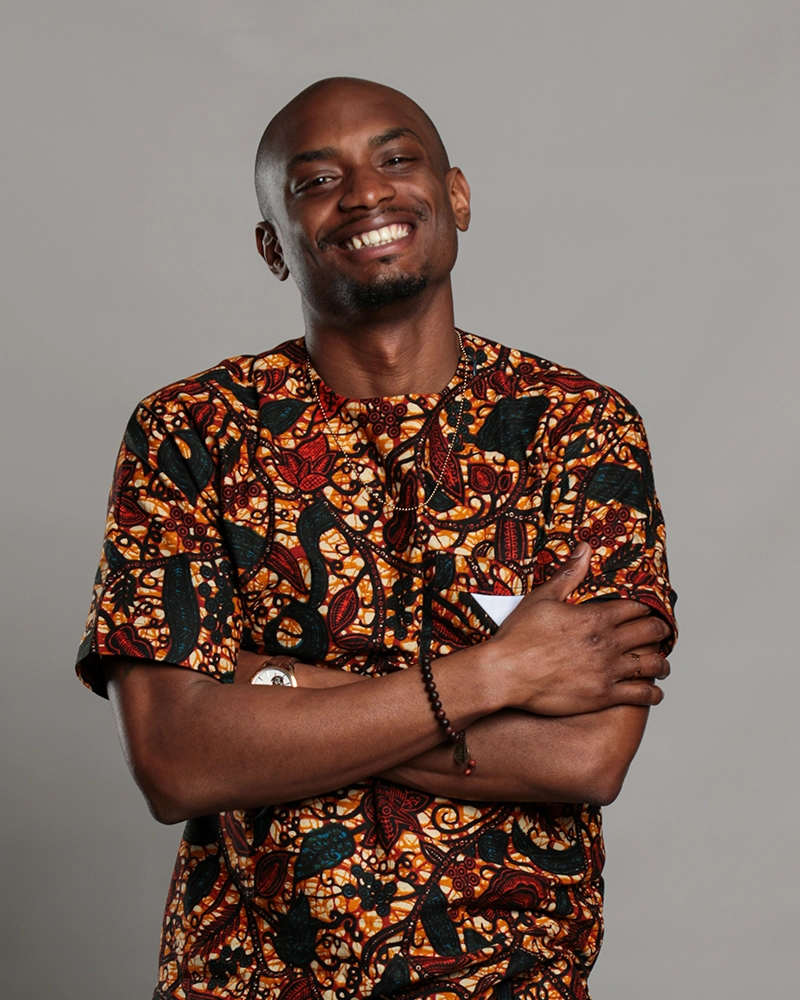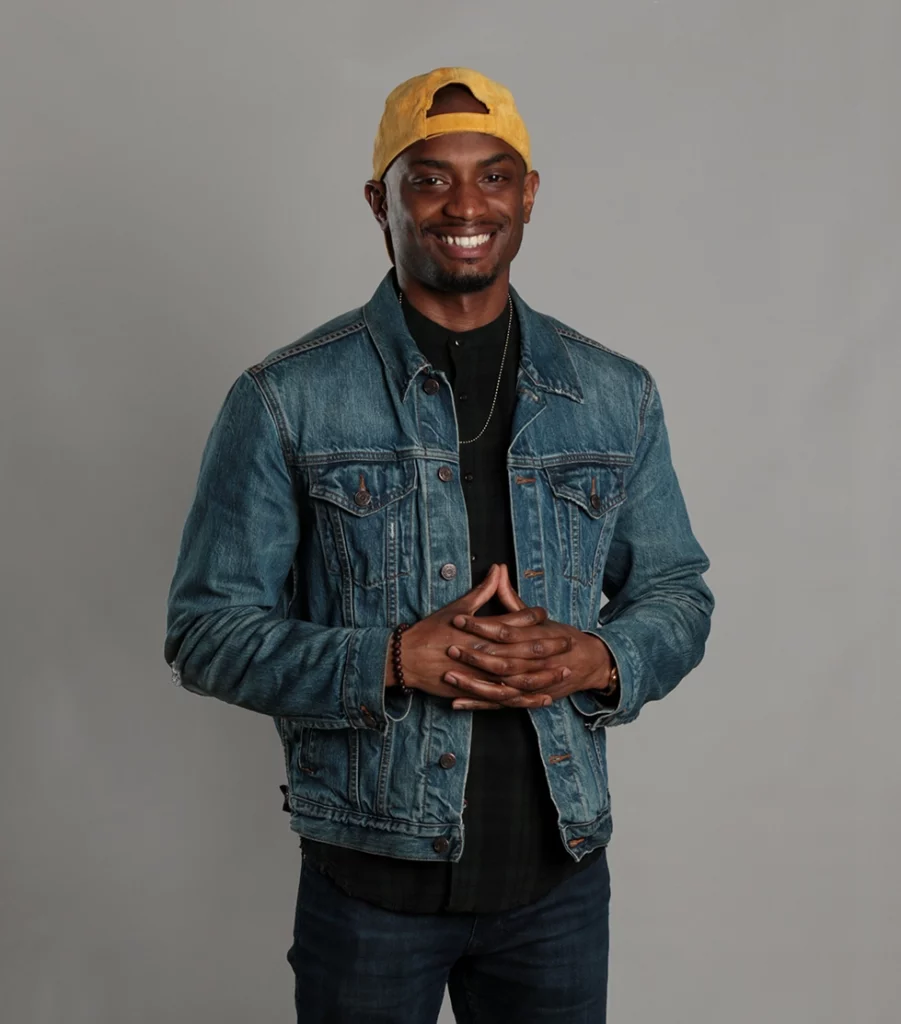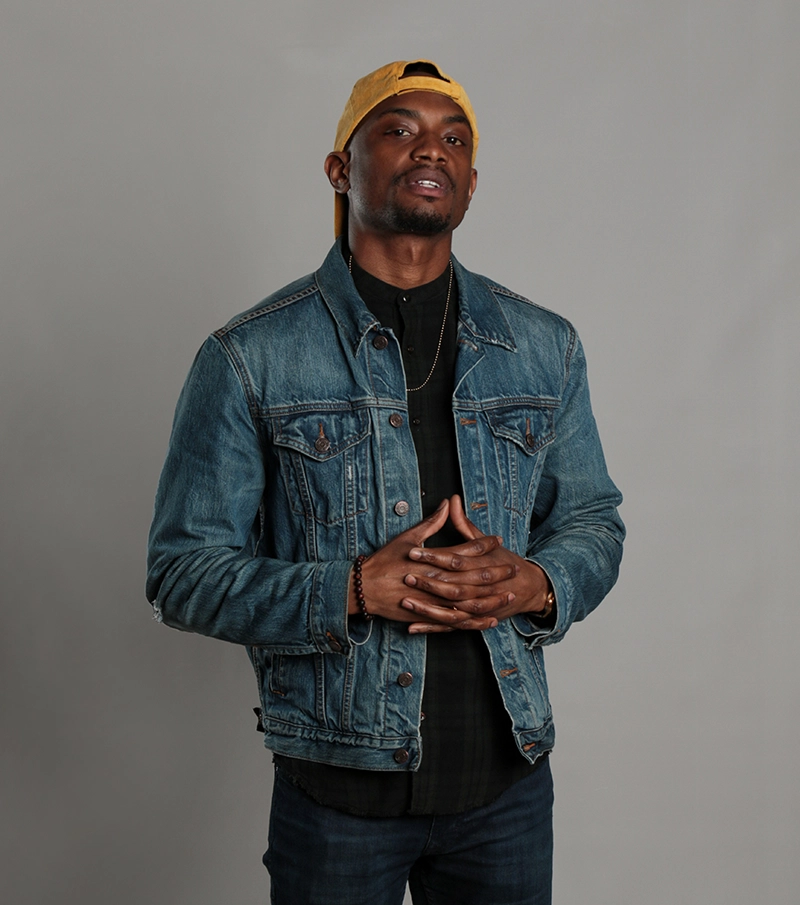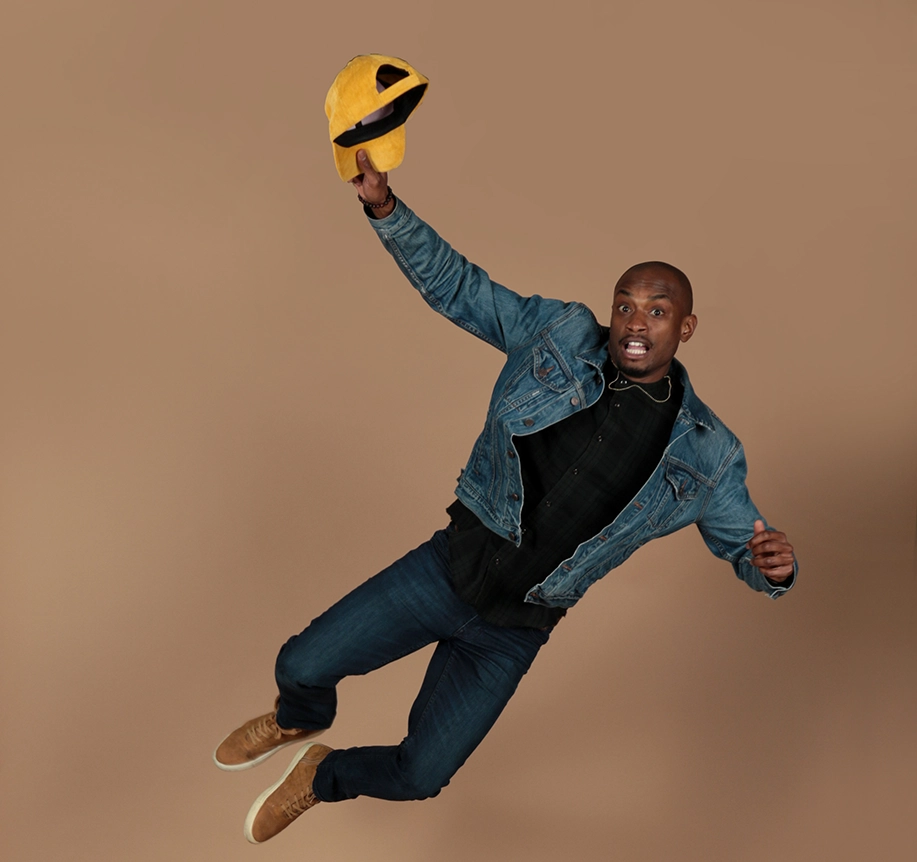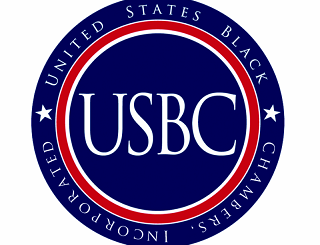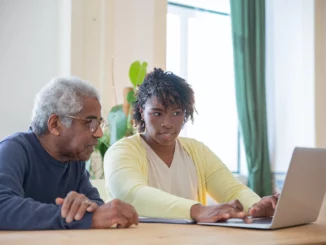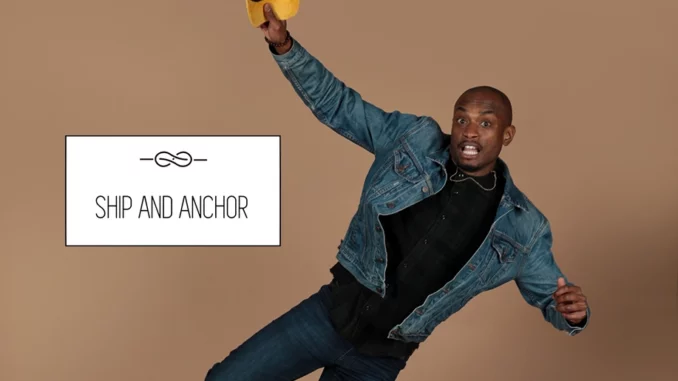
By Staff
What inspired you to become an entrepreneur?
The short answer is my experience working with an international economic development organization. In that role I would recruit and certify diverse-owned businesses across the country, develop programs and opportunities to grow and develop their capacity, and ultimately connect them to for fortune-ranked corporations and government agencies for contracting opportunities. The work was supplier diversity – helping get minority and diverse-owned businesses into major corporate and government supply chains. Working with entrepreneurs across the country from those making $0 in revenue to those making $10’s of millions in revenue, across industries excited me; it kept me engaged and challenged in a way that traditional 9-5 work hadn’t.
The longer answer is that it was having met and became good friends with a group of brothers when I was incarcerated in Lexington, NC. The 5-6 of us would read books on business, hold our own classes, write business plans, watch shark tank, and just do whatever we could to understand and learn how to start and grow a business. Before then, I’d never considered that I even had the skills or mentality to be an entrepreneur. Prior to that I had only seen myself as a teacher or some other community leader. But after spending about a year with those brother began to realize how fun it was to be creative and in the realm of entrepreneurship.
Tell us about your company and mission.
My company is Ship and Anchor, a social impact enterprise that offers business development, strategic communications and messaging, and general management consulting to organizations that market or serve one or more of our 4 Impact Groups: Current, formerly incarcerated people, students, small business enterprises, BIPOC. We are in the business of inspiring organizations and people to transform into their best versions, yet. We create and co-create programs and experiences that enhance culture and strengthen communities.
We are actually in a bit of a transition, as we have growing media division that has produced a podcast, short documentary film, books (on the way), and even music. It’s an incredible experience for me to witness the evolution and ideas born from a prison cell blossom into all of this. Even deeper than the satisfaction of manifesting ideas from prison is the connection to the family business that started when my great grandfather, Captain Clyde Smith, was a child.
On my father’s side, most all the men were commercial fishermen. In our hometown, a small rural peninsula on the coast of NC in Pamlico County (affectionately called The County), the Smith family had been known for that. That all came to an end on back in 2009 when my father, uncles, cousin, and others passed died at sea aboard the Lady Mary – a scallop boat named after my great grandmother. My struggle grappling with that kind of loss as a teenager is ultimately what led me to incarceration just 2 years later. So, it’s incredibly gratifying to finally see Ship and Anchor picking up steam and honoring that family legacy of entrepreneurship.
Tell us about your partnership with Georgetown University.
I currently partner with program in Georgetown’s Center for Social Justice Research, Teaching, and Service, called the After School Kids (ASK) Program. We connected because the program’s focus was on court-involved students, meaning young people who had been charged or convicted of some type of criminal offense. The idea was to connect with their students to participate in “What’s Your Anchor”, which is a personal and professional development framework that I created from analyzing the journals I wrote in prison back in 2019; it was my first time doing so. “What’s Your Anchor” emphasizes guided introspection to draw insights from one’s own experiences to discover and get anchored in three areas: Identity, Vision, and Shipmates.
We eventually brought in Voices Unbarred, a DC-based nonprofit that centers the voices of people directly impacted by incarceration to reimagine the criminal legal system using a theater technique called Theatre of the Oppressed (T/O). We collaborated to incorporate T/O and principles of social emotional learning (SEL) into the “What’s Your Anchor” framework to develop an 8-week program which culminated in a final performance at the National Theatre in Washington, DC. After completing the program with our initial cohort, each student reported positive impacts across categories, including feeling able to determine their own outcomes, feeling confident in who they are, enjoying expressing themselves, and having ideas they wanted to share with others.
As Ship and Anchor’s partnership with Georgetown continues to grow, we will be onboarding our first student fellows this summer, and are working on enhancing the program in alignment with research-backed principles of community and gun violence prevention and intervention – an issue that has taken center stage in DC since the pandemic in 2020.
What has been the most difficult thing you had to overcome?
Prison has certainly been among the most difficult things I’ve had to overcome. A friend of mine, David Sampe, has a saying, “every sentence is a life sentence.” It’s such a true statement. I have to say, my experience was not that bad relatively speaking – I was able to reduce my 4-year sentence to 2; I was able to teach while incarcerated, which is my true calling; I was never physically harmed; and I had loved ones who would write, visit, and put money on the phone to talk to me. I thank God for such favor. Nonetheless, every sentence is indeed a life sentence.
What makes prison the most difficult thing I’ve had to overcome are the mental and social-emotional affects. In nearly all aspects of our lives we have ways of changing our circumstances. At the very least there’s always someone you higher up the chain you can complain to who will at least try to appease you. Few people understand the feeling of literally being trapped in a cage day-in and day-out, and there is nothing you can do to stop it – even if you’ve actually learned your lesson.
It requires very intentional, deliberate work to avoid the gravitational pull of the constancy of that kind of environment – avoiding the lure of lashing out in rage at officers who treat you as the second-class citizens you actually are; the lure of more keen criminal tactics; the lure of giving up on yourself, as the world demonstrates that it already has. It gets worse upon release because at least in prison all inmates are equal. Once released you are legally allowed to be discriminated against, and often alienated from the rest of the world – those who don’t bare the baggage of spending years of your life in a cage.
If it takes about 60 days to form a new habit, how deeply ingrained are the habits formed in prison – typically idleness, constant battle, accepting less, living without love, hypervigilance, bitterness, fear, worry, shame, guilt…those become habits that require very intentional work to unlearn and replace with habits that better serve us. The difficulty is, there aren’t many opportunities for that kind of unlearning and rebuilding.
Beyond the difficulty of prison, is the guilt and shame of knowing that someone died because of my actions. Every time I have to check a box or encounter a barrier due to my criminal record, I restart that process all over again. Every sentence is a life sentence.
What’s your take on mental health and African American men?
I don’t think Black men get enough credit for how well we’ve maintained our mental health over the course of our time in the United States. There’s never been a time that the mere fear our existence has not been validated as just means to kill us. I believe that in the era of safe spaces, there are fewest safe spaces for Black men to simply be. In fact, the safest thing there is to be as a Black man is the semblance of ANYTHING other than a Black man.
That said, I hate to generalize about any race, especially black people, because we are not a monolith. Nonetheless, as it pertains to mental health, I want Black men to have knowledge and skills to prioritize overall wellness. Wellness accounts for emotional, financial, social, spiritual, occupational, physical, intellectual, and environmental factors. If you consider all of the things that have historically adversely impacted our mental health, they fall in one of these categories. That’s why I say I want us to have knowledge and skills for wellness, because throughout history we have been institutionally harmed in these categories. While I’d like to be optimistic and say I believe that will change, in lieu of these institutional transformations I believe there are certain principles of wellness we can employ to mediate the adverse impact on our mental health.
What does success look like for you?
To me, success looks like living in my purpose, my destiny. And I don’t believe purpose or destiny is something that falls out of the sky into our laps, or we are lucky to stumble upon. I believe that through our thoughtful introspection of our life’s journey, the things we care about, and the things that we do naturally to add value to the world around us together make up our purpose or destiny. That’s the function of the “What’s Your Anchor” framework – to uncover your purpose and/or thoughtfully create it…which sounds a lot like freedom, right?
I do think that success changes over time also. As often as we learn more about ourselves the world, grow and evolve, and experience new things, our definition of success may change. So, I think success looks like the moment-to-moment awareness of how to employ all that you’ve been in the creation of all that you want to be. For example: I was in school to be a teacher before ending up in prison I was in school to be a teacher. However, once I became a convicted felon I thought that was over for me. However, while incarcerated I was able to teach GED to folks who, for some, hadn’t been in school in as long as I’d been alive – and I was damn good at it! During that timeframe we’d graduated more students with their full GED than in previous years at that facility – I was wildly successful. However, if I’d had the perspective of a specific scenario determining success then that would have been just another difficult, mundane experience in the saga of life.
So, in this moment I believe I am successful. Literally, everything that should have turned my life inside out – the tragic loss of my family, accidentally causing another person’s death, serving time as a felon, wrestling with suicidal ideation, etc. – are being employed in the becoming of the person I want to be. That is a slightly eccentric daytime dreamer who uses his skills, interest, and experiences to develop sustainable businesses and communities that improve people’s lives.
Where would you like to see your business in the next five years?
In the next five years I see there being a “What’s Your Anchor” academy of sorts, where people come to our facility to discover the ANCRD (an acronym pronounced “anchored” that stands for Anchored Navigators Creating & Reaching our Destiny). I envision it being like a month-long experience for cohorts of people to undergo the process, then learn how to integrate it as a way of life. That’s the piece that’s currently missing, the time to work with folks over a period of time to practice staying ANCRD while developing skills and trades that work towards their purpose. This would be open to not only current and formerly incarcerated people, but to others who tend to perform poorly in traditional academic and other institutional settings.
I also see Ship and Anchor having an international scope; I can’t wait to get to the motherland and build with brothers and sisters out there. I see us as among the premier organizations helping small business enterprises transform into their best versions, yet, and generally helping to develop more inclusive, efficient, and sustainable local and regional economies.
I see Ship and Anchor as I highly sought after place for people to want to work. I believe the ultimate measure of how well a company operates is by how enthusiastic, satisfied, and invested its team is. I want people to want to work at Ship and Anchor because they know they will get to work on cool projects that will stretch them personally and professionally and contribute to a better world.




